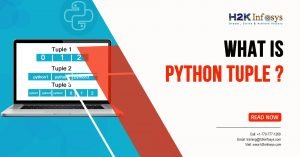Did you know that most modern applications, whether it’s AI, data analytics, or web development, are powered by object-oriented programming concepts? Python OOPs is one of the most powerful features that makes Python a favorite among developers worldwide. By mastering OOPs, you can build scalable, reusable, and efficient code for real-world applications.
Whether you are aiming for a career in Python programming, preparing for interviews, or planning to take a Python certification course, understanding OOPs is the turning point. In this blog, we’ll break down the core concepts of Python OOPs, explain them with real-world examples, and show you how online certification in Python can boost your career.
What Are Python OOPs Concepts?
Python OOPs stands for Object-Oriented Programming in Python. It is a programming paradigm that organizes code into objects and classes instead of just functions and logic. This makes code more modular, readable, and reusable.

Key concepts include:
- Class: A blueprint for creating objects.
- Object: An instance of a class.
- Encapsulation: Hiding implementation details from the user.
- Inheritance: Reusing and extending existing code.
- Polymorphism: Writing flexible code that can handle multiple data types or behaviors.
- Abstraction: Showing only relevant details to the user.
By learning these, you can build everything from simple automation scripts to complex enterprise systems.
Why Learn Python OOPs?
Here’s why OOPs is critical in your Python programming training course:
- Real-World Application
- OOPs is used in frameworks like Django for web development, TensorFlow for AI, and Flask for microservices.
- Example: A shopping cart in an e-commerce app can be designed as a class with attributes like product name, price, and quantity.
- Scalability and Reusability
- Reuse existing classes to add new features without rewriting everything.
- Industry Demand
- According to job reports, Python is among the top 3 most in-demand programming languages globally, and OOPs knowledge is a must for most roles.
- Career Growth
- Employers value professionals with strong OOPs concepts. Having an online certification in Python gives you a competitive edge.
Core Python OOPs Concepts Explained
1. Classes and Objects
A class is a template, while an object is an instance.
Example:
class Student:
def __init__(self, name, course):
self.name = name
self.course = course
def display_info(self):
print(f"Student: {self.name}, Course: {self.course}")
# Creating an object
student1 = Student("Rahul", "Python OOPs")
student1.display_info()
Output:
Student: Rahul, Course: Python OOPs
This is the foundation of OOPs, and mastering it is crucial in any Python certification course.
2. Encapsulation
Encapsulation hides data and ensures controlled access.
class BankAccount:
def __init__(self, balance):
self.__balance = balance # private variable
def deposit(self, amount):
self.__balance += amount
def get_balance(self):
return self.__balance
This ensures security—just like real-world banking applications.
3. Inheritance
Inheritance allows new classes to reuse existing ones.
class Vehicle:
def __init__(self, brand):
self.brand = brand
def show_brand(self):
print(f"Brand: {self.brand}")
class Car(Vehicle):
def __init__(self, brand, model):
super().__init__(brand)
self.model = model
def show_details(self):
print(f"Car: {self.brand}, Model: {self.model}")
With inheritance, developers can extend existing systems without starting from scratch.
4. Polymorphism
Polymorphism allows multiple classes to share the same interface.
class Dog:
def sound(self):
return "Bark"
class Cat:
def sound(self):
return "Meow"
def make_sound(animal):
print(animal.sound())
make_sound(Dog())
make_sound(Cat())
This feature is widely used in AI models, simulations, and APIs.
5. Abstraction
Abstraction hides complex logic and exposes only the necessary part.
from abc import ABC, abstractmethod
class Shape(ABC):
@abstractmethod
def area(self):
pass
class Circle(Shape):
def __init__(self, radius):
self.radius = radius
def area(self):
return 3.14 * self.radius * self.radius
This helps developers work with simplified interfaces, making projects easier to manage.
Practical Applications of Python OOPs
- Web Development: Frameworks like Django use OOPs for managing databases, user sessions, and templates.
- Data Science: Libraries like Pandas and NumPy are built on OOPs principles.
- Automation: OOPs makes writing reusable automation scripts more efficient.
- Artificial Intelligence: Neural networks in TensorFlow and PyTorch rely heavily on OOPs.
Learning these through a structured Python online training program helps you apply them directly in real-world projects.
Python OOPs in a Python Certification Course
At H2K Infosys, the Python programming training course covers:
- Fundamentals of Python and OOPs
- Real-time projects using OOPs concepts
- Practical assignments with industry case studies
- Interview preparation and mock sessions
- Placement guidance for a career in Python programming
By the end of the course, you’ll not only understand Python OOPs but also gain confidence in applying them across industries.
Industry Demand for OOPs Skills
- Job Roles: Python Developer, Data Scientist, AI Engineer, Automation Engineer.
- Salary Trends: Average salary for Python professionals is 25–40% higher when they demonstrate strong OOPs expertise.
- Recruiters’ Preference: Employers prefer candidates with online certification in Python backed by practical OOPs skills.
Step-by-Step Guide to Master Python OOPs
- Start with Basics: Understand syntax and small examples.
- Build Projects: Create apps like calculators, student management systems, or banking systems.
- Practice Regularly: Solve coding exercises focusing on OOPs.
- Enroll in Python Online Training: Get structured guidance and feedback.
- Earn Certification: A Python certification course validates your skills globally.
Key Takeaways
- Python OOPs is essential for writing reusable, scalable, and professional code.
- It opens doors to careers in AI, web development, and data science.
- Enrolling in a Python online training or Python certification course is the fastest way to master these skills.
- A structured learning approach helps you prepare for interviews and grow your career in Python programming.
Conclusion
Mastering Python OOPs is your gateway to building real-world applications and advancing your programming career. Don’t just learn Python gain hands-on experience with expert training.
Enroll with H2K Infosys today for Python Online Training and accelerate your career in Python programming!
Questions
- What is Python Oops?
- What are different concepts of Oops?


























